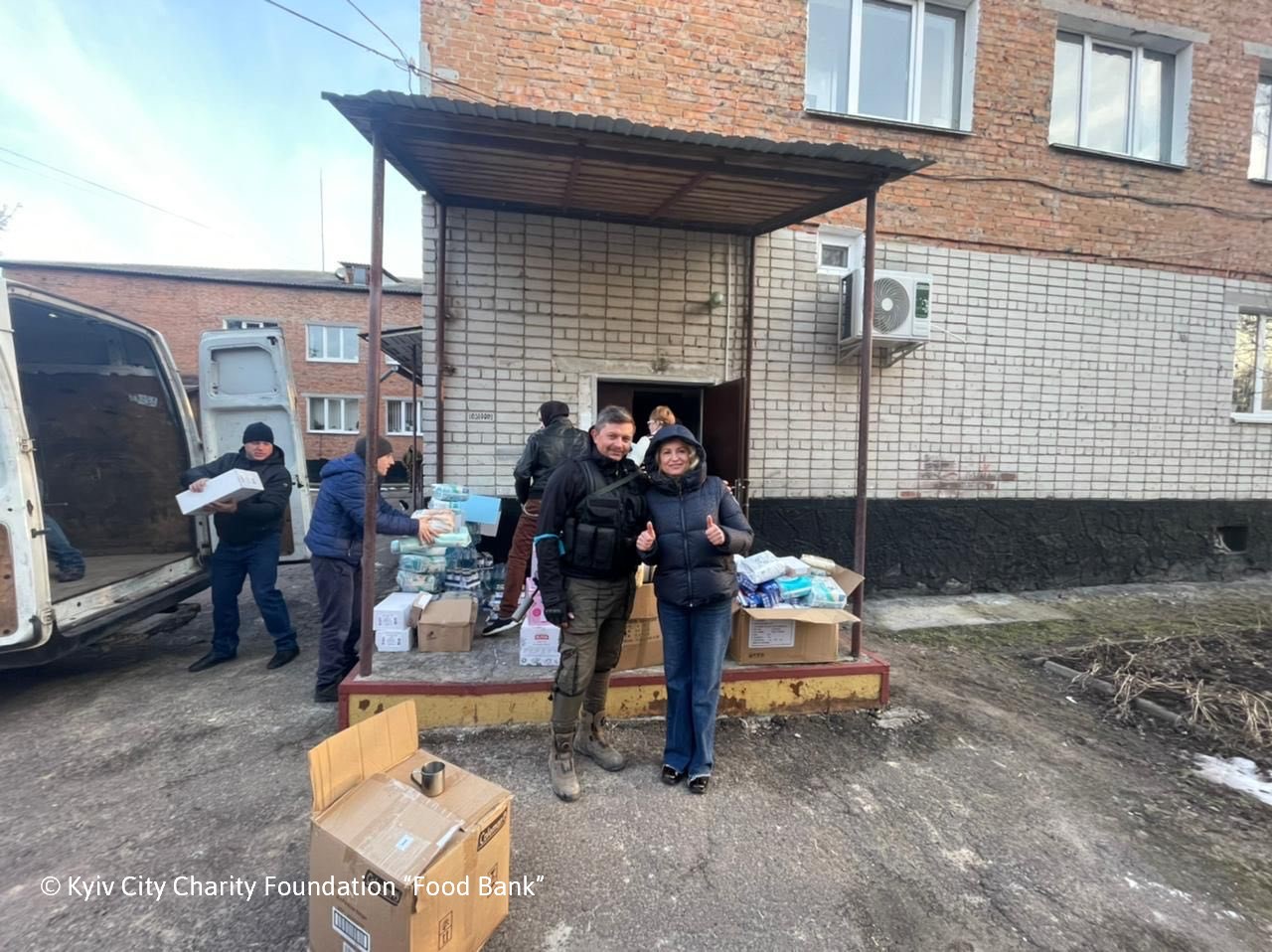This is an update from Ukraine since we last asked Nadiya Borysenko, Founder of the Kyiv City Charity Foundation “Food Bank”, to tell us what they were experiencing, two weeks ago. You can read the previous article here.
The Kyiv City Charity Foundation “Food Bank” (KCCF) continues to operate on the ground, thanks to its tireless volunteers. Nadiya, how has your day-by-day changed since the outbreak of the war?
Well, first thing we did was the organisation of food delivery through the borders. This happens in two ways: food goes directly to warehouses in the Yavorivski region, L’viv district, or in Chernivtsi city. This is surely the most suitable option from a logistic standpoint. In the second case, when delivery to Ukraine is not possible, we use a warehouse on the border with Poland. Then, from there, food is loaded on a truck that brings it to L’viv district.
We also keep on operating in Kyiv, thanks to two other big storehouses.
Astonishing, the number of permanent volunteers has grown. Many of the new people come from Cargill (a multinational company) who are involved in aid receiving, delivering and paperwork to adapt to legislative changes.
Where is KCCF operating now?
Our “headquarter” are the two big storehouses in Kyiv. We provide support to families who has fled from Chernigiv, Sumi and other destroyed areas. Then we have elderly people and large families to take care of, we operate in bomb shelters and in hospitals.
We were able to deliver the food we received from Estonia and Romania to an orphanage in Nizhyn, which is now a very hot area, and managed to help 102 among disable and needy kids. We were really proud we could make it, it is such a pain to see how they are suffering.
Cities under attack are a problem when it comes to food delivery, but we are working to extend the possibility to cover those areas.
Many people find Western Ukraine a safer place to stay, but now the arrivals are so many, that the need of food support is vertically growing. We cooperate with other charities like Tarilka to take care of that. We also purchased food products from METRO and Nestlé and delivered to Kiev, Vinnitsa, Ivano-Frankivsk and Chernovtsy.
How much food have you delivered since the outbreak of the war?
As of the 17th of March, we delivered more than 414 tonnes of food and non-food products, water, frozen chicken, fresh fruit and vegetables: 138 tonnes came from Estonia and Romania, while more than 300 tonnes from stores and local producers (water, hygiene products, frozen chicken, bread, fruits and vegetables).
We are serving 3,000 people on daily basis. Food is purchased with the money we received from FEBA and PepsiCo.
Then, it gets distributed thanks to our 33 permanent volunteers: 20 volunteers from territory defence, who drive us to pick up dairy food in Kyiv, and 15 civilians, including 3 foreign people.
What products do you need the most now?
We still need: canned fish, meat, vegetables, dry milk & soups, flour, vegetable oil and any types of grains (rice, oatmeal), hard cheese, sugar, tea, yeast, diapers, and thermal blankets.
There is a huge demand for pharmacy/medication products such as medical kits, elastic bandages, anti-cold, haemostatic, anaesthetics, syringes catheters, and anti-burn bandages.
What is the most serious and urgent challenge for KCCF right now?
Logistic, ways to access the most suffering areas. As I said, this orphanage for disabled in Nizhyn currently has 102 inhabitants from 3 to 25 years old. 75% of them cannot be transferred, there is no possibility to evacuate them. Nizhyn has been attacked in the first days of war due to its close distance to the border with Russia. There was no possibility to bring food there because of close fights. Also, it was not possible to buy food in the region. Olena Garmash, the director of the school, informed us that they have food left just for one week. With the help of FEBA, we managed to arrange delivery of food and hygienic products to Nizhyn and support the orphanage. Now we are at least sure they will survive and have enough food reserve.




